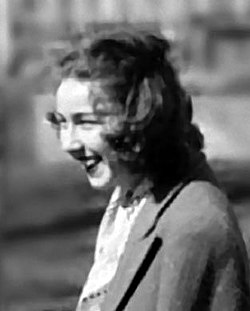Flannery O'Connor Quote
Old Dudley would get out his gun and take it apart and, as Rabie cleaned the pieces, would explain the mechanism to him. Then he’d put it together again. Rabie always marveled at the way he could put it together again. Old Dudley would have liked to have explained New York to Rabie. If he could have showed it to Rabie, it wouldn’t have been so big—he wouldn’t have felt pressed down every time he went out in it. It ain’t so big, he would have said. Don’t let it get you down, Rabie. It’s just like any other city and cities ain’t all that complicated. But they were. New York was swishing and jamming one minute and dirty and dead the next. His daughter didn’t even live in a house. She lived in a building—the middle in a row of buildings all alike, all blackened-red and gray with rasp-mouthed people hanging out their windows looking at other windows and other people just like them looking back. Inside you could go up and you could go down and there were just halls that reminded you of tape measures strung out with a door every inch. He remembered he’d been dazed by the building the first week. He’d wake up expecting the halls to have changed in the night and he’d look out the door and there they stretched like dog runs. The streets were the same way. He wondered where he’d be if he walked to the end of one of them. One night he dreamed he did and ended at the end of the building—nowhere.
Old Dudley would get out his gun and take it apart and, as Rabie cleaned the pieces, would explain the mechanism to him. Then he’d put it together again. Rabie always marveled at the way he could put it together again. Old Dudley would have liked to have explained New York to Rabie. If he could have showed it to Rabie, it wouldn’t have been so big—he wouldn’t have felt pressed down every time he went out in it. It ain’t so big, he would have said. Don’t let it get you down, Rabie. It’s just like any other city and cities ain’t all that complicated. But they were. New York was swishing and jamming one minute and dirty and dead the next. His daughter didn’t even live in a house. She lived in a building—the middle in a row of buildings all alike, all blackened-red and gray with rasp-mouthed people hanging out their windows looking at other windows and other people just like them looking back. Inside you could go up and you could go down and there were just halls that reminded you of tape measures strung out with a door every inch. He remembered he’d been dazed by the building the first week. He’d wake up expecting the halls to have changed in the night and he’d look out the door and there they stretched like dog runs. The streets were the same way. He wondered where he’d be if he walked to the end of one of them. One night he dreamed he did and ended at the end of the building—nowhere.
Related Quotes
About Flannery O'Connor
O'Connor was a Southern writer who often wrote in a sardonic Southern Gothic style. She relied heavily on regional settings and grotesque characters, often in violent situations. In her writing, an unsentimental acceptance or rejection of the limitations, imperfections or differences of these characters (whether attributed to disability, race, crime, religion or sanity) typically underpins the drama.
O'Connor's writing often reflects her Catholic faith, and frequently examines questions of morality and ethics. Her posthumously compiled Complete Stories won the 1972 U.S. National Book Award for Fiction and has been the subject of enduring praise.
